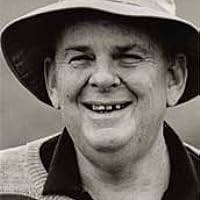Hysterical Dissociation Quotes
Quotes tagged as "hysterical-dissociation"
Showing 1-6 of 6

“It was Freud's ambition to discover the cause of hysteria, the archetypal female neurosis of his time. In his early investigations, he gained the trust and confidence of many women, who revealed their troubles to him.Time after time, Freud's patients, women from prosperous, conventional families, unburdened painful memories of childhood sexual encounters with men they had trusted: family friends, relatives, and fathers. Freud initially believed his patients and recognized the significance of their confessions. In 1896, with the publication of two works, The Aetiology of Hysteria and Studies on Hysteria, he announced that he had solved the mystery of the female neurosis. At the origin of every case of hysteria, Freud asserted, was a childhood sexual trauma.
But Freud was never comfortable with this discovery, because of what it implied about the behavior of respectable family men. If his patients' reports were true, incest was not a rare abuse, confined to the poor and the mentally defective, but was endemic to the patriarchal family. Recognizing the implicit challenge to patriarchal values, Freud refused to identify fathers publicly as sexual aggressors. Though in his private correspondence he cited "seduction by the father" as the "essential point" in hysteria, he was never able to bring himself to make this statement in public. Scrupulously honest and courageous in other respects, Freud falsified his incest cases. In The Aetiology of Hysteria, Freud implausibly identified governessss, nurses, maids, and children of both sexes as the offenders. In Studies in Hysteria, he managed to name an uncle as the seducer in two cases. Many years later, Freud acknowledged that the "uncles" who had molested Rosaslia and Katharina were in fact their fathers. Though he had shown little reluctance to shock prudish sensibilities in other matters, Freud claimed that "discretion" had led him to suppress this essential information.
Even though Freud had gone to such lengths to avoid publicly inculpating fathers, he remained so distressed by his seduction theory that within a year he repudiated it entirely. He concluded that his patients' numerous reports of sexual abuse were untrue. This conclusion was based not on any new evidence from patients, but rather on Freud's own growing unwillingness to believe that licentious behavior on the part of fathers could be so widespread. His correspondence of the period revealed that he was particularly troubled by awareness of his own incestuous wishes toward his daughter, and by suspicions of his father, who had died recently.
p9-10”
― Father-Daughter Incest
But Freud was never comfortable with this discovery, because of what it implied about the behavior of respectable family men. If his patients' reports were true, incest was not a rare abuse, confined to the poor and the mentally defective, but was endemic to the patriarchal family. Recognizing the implicit challenge to patriarchal values, Freud refused to identify fathers publicly as sexual aggressors. Though in his private correspondence he cited "seduction by the father" as the "essential point" in hysteria, he was never able to bring himself to make this statement in public. Scrupulously honest and courageous in other respects, Freud falsified his incest cases. In The Aetiology of Hysteria, Freud implausibly identified governessss, nurses, maids, and children of both sexes as the offenders. In Studies in Hysteria, he managed to name an uncle as the seducer in two cases. Many years later, Freud acknowledged that the "uncles" who had molested Rosaslia and Katharina were in fact their fathers. Though he had shown little reluctance to shock prudish sensibilities in other matters, Freud claimed that "discretion" had led him to suppress this essential information.
Even though Freud had gone to such lengths to avoid publicly inculpating fathers, he remained so distressed by his seduction theory that within a year he repudiated it entirely. He concluded that his patients' numerous reports of sexual abuse were untrue. This conclusion was based not on any new evidence from patients, but rather on Freud's own growing unwillingness to believe that licentious behavior on the part of fathers could be so widespread. His correspondence of the period revealed that he was particularly troubled by awareness of his own incestuous wishes toward his daughter, and by suspicions of his father, who had died recently.
p9-10”
― Father-Daughter Incest

“When preparing for Book One, I talked to a couple of psychiatrists about psychosomatic phenomena, neuroses and dissociative conditions, for example the so—called hysterical blindness suffered by many who saw the Killing Fields in Pol Pot’s Cambodia: their eyes objectively see, but they are not aware of it and are blind because they believe they can’t see. One specialist told me that among modern Western people, ’metaphorical’ symptoms such as Fredy or those Cambodians evince are much rarer now than earlier in the twentieth century or before. Nowadays most people are better equipped by education to verbalise their neuroses, and have lots of jargon in which to do so. For most of the dissociative dimension, I could draw on things I knew from within myself.”
― Fredy Neptune
― Fredy Neptune

“000-x02 Dissociative reaction
This reaction represents a type of gross personality disorganization, the basis of which is a neurotic disturbance, although the diffuse dissociation seen in some casts may occasionally appear psychotic. The personality disorganization may result in aimless running or "freezing." The repressed impulse giving rise to the anxiety may be discharged by, or deflected into, various symptomatic expressions, such as depersonalization, dissociated personality, stupor, fugue, amnesia, dream state, somnambulism, etc. The diagnosis will specify symptomatic manifestations.
These reactions must be differentiated from schizoid personality, from schizophrenic reaction, and from analogous symptoms in some other types of neurotic reactions. Formerly, this reaction has been classified as a type of "conversion hysteria.”
― DSM I: Diagnostic and Statistical Manual Mental Disorders
This reaction represents a type of gross personality disorganization, the basis of which is a neurotic disturbance, although the diffuse dissociation seen in some casts may occasionally appear psychotic. The personality disorganization may result in aimless running or "freezing." The repressed impulse giving rise to the anxiety may be discharged by, or deflected into, various symptomatic expressions, such as depersonalization, dissociated personality, stupor, fugue, amnesia, dream state, somnambulism, etc. The diagnosis will specify symptomatic manifestations.
These reactions must be differentiated from schizoid personality, from schizophrenic reaction, and from analogous symptoms in some other types of neurotic reactions. Formerly, this reaction has been classified as a type of "conversion hysteria.”
― DSM I: Diagnostic and Statistical Manual Mental Disorders
“Dissociative disorders (DDs) were first recognized as official psychiatric disorders in 1980 with the publication of the Diagnostic and Statistical Manual of Mental Disorders, Third Edition (DSM III) in 1980. Prior to this, the related symptoms were listed under ‘hysterical neuroses’ in the second edition of the DSM.[1,2] Interestingly, all of the current DDs that have been described were discovered prior to 1900 but decades passed with little study or research of this spectrum of psychiatric pathology.”
―
―

“The DSM concept of pathological dissociation has evolved from the early inclusive concept of a dissociative reaction in DSM-I to five distinct dissociative disorders in DSM-IV: dissociative amnesia, dissociative fugue, depersonalization disorder, DDNOS, and MPD/DID [Dissociative Identity Disorder]. The first four disorders are rarely challenged, but the existence of MPD/DID has been more or less continually under attack for more than a century. I perceive many of these attacks as misdirected at a mass media stereotype that does not resemble the actual clinical condition.”
― Dissociation in Children and Adolescents: A Developmental Perspective
― Dissociation in Children and Adolescents: A Developmental Perspective

“300.1 Hysterical neurosis
This neurosis is characterized by an involuntary psychogenic loss or disorder of function. Symptoms characteristically begin and end suddenly in emotionally charged situations and are symbolic of the underlying conflicts. Often they can be modified by suggestion alone. This is a new diagnosis that encompasses the former diagnoses "Conversion reaction" and "Dissociative reaction" in DSM-I. This distinction between conversion and dissociative reactions should be preserved by using one of the following diagnoses whenever possible.
300.14* Hysterical neurosis, dissociative type*
In the dissociative type, alterations may occur in the patient's state of consciousness or in his identity, to produce such symptoms as amnesia, somnambulism, fugue, and multiple personality.
DSM-II (1968)”
― Diagnostic and Statistical Manual of Mental Disorders DSM-II
This neurosis is characterized by an involuntary psychogenic loss or disorder of function. Symptoms characteristically begin and end suddenly in emotionally charged situations and are symbolic of the underlying conflicts. Often they can be modified by suggestion alone. This is a new diagnosis that encompasses the former diagnoses "Conversion reaction" and "Dissociative reaction" in DSM-I. This distinction between conversion and dissociative reactions should be preserved by using one of the following diagnoses whenever possible.
300.14* Hysterical neurosis, dissociative type*
In the dissociative type, alterations may occur in the patient's state of consciousness or in his identity, to produce such symptoms as amnesia, somnambulism, fugue, and multiple personality.
DSM-II (1968)”
― Diagnostic and Statistical Manual of Mental Disorders DSM-II
All Quotes
|
My Quotes
|
Add A Quote
Browse By Tag
- Love Quotes 97.5k
- Life Quotes 76k
- Inspirational Quotes 73k
- Humor Quotes 44k
- Philosophy Quotes 29.5k
- Inspirational Quotes Quotes 27k
- God Quotes 26k
- Truth Quotes 23.5k
- Wisdom Quotes 23.5k
- Romance Quotes 23k
- Poetry Quotes 22k
- Death Quotes 20k
- Happiness Quotes 18.5k
- Life Lessons Quotes 18.5k
- Hope Quotes 18k
- Faith Quotes 18k
- Quotes Quotes 16.5k
- Inspiration Quotes 16.5k
- Spirituality Quotes 15k
- Religion Quotes 15k
- Motivational Quotes 15k
- Writing Quotes 15k
- Relationships Quotes 14.5k
- Life Quotes Quotes 14k
- Love Quotes Quotes 14k
- Success Quotes 13.5k
- Time Quotes 12.5k
- Motivation Quotes 12k
- Science Quotes 11.5k
- Motivational Quotes Quotes 11.5k

